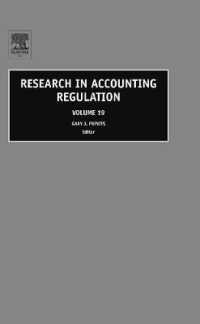Full Description
The Elgar Encyclopedia of the Sociology of Education examines the prospects of a global and decolonial sociology of education by drawing on international and interdisciplinary cases and perspectives.
Entries shed new light on the field's concerns with equity, justice and opportunity by addressing issues such as the impacts of inequality on urban and rural schooling, the effects of digitalization on the worlds of work and climate change, the allure of nationalism and the regimes imposed by the politicization of migration. Expert contributors advocate for breaking away from geographical and disciplinary borders to understand the persistence of coloniality in the global present. Authors re-consider the material, emotional and metaphorical relations with the more-than-human worlds as a foundation for building shared and sustainable educational futures.
Written by established and emerging scholars, this thought-provoking Encyclopedia is an essential reference for graduate and undergraduate students of sociology and sociological theory, as well as education and education theory. It is also of great benefit to academic faculty and education practitioners.
Key Features:
Includes 85 entries from 113 international experts representing a diversity of contexts across the global South and North.
Provides novel insights from an interdisciplinary team of scholars into the entanglements of race, class, gender and sexual identity, affect and materiality in social orders, and their wider influences on the politics of mobility and governance.
Builds on new developments in global sociology to advocate for a heightened engagement with post and de-colonial critique in sociology of education.
Contents
Contents
Introduction: for a global and
interconnected sociology of
education xiii
Ravinder K. Sidhu, Yi'En
Cheng and Johanna L. Waters
1 Academic freedom 1
Dina Kiwan
2 Adult education and lifelong
learning 5
John Holford
3 Aesthetics in the emerging
sociology of educational
leadership 9
Fenwick W. English and Lisa
Catherine Ehrich
4 Affect and emotion: is there a
difference and does it matter? 12
Megan Watkins
5 African international students
in China: experiences and
geopolitical projects 16
Benjamin Mulvey
6 Alternative education and
schooling 20
Amber Fensham-Smith
7 Artificial intelligence and
education 25
Neil Selwyn
8 Being-in-the-world 29
Chi Hong Nguyen
9 Belonging 33
Jihyun Lee
10 Care in academic cultures 36
Marie-Pierre Moreau
11 Charter schooling and
indigenous sovereignty in
education 40
Daniel Kiwa McKinnon
(Ngāti Rangitihi Puketapu)
12 Citizenship and civics
education 45
Bronwyn E. Wood
13 Confucianism and education 48
Charlene Tan
14 Construction of domestic
higher education students in
Europe 52
Rachel Brooks
15 Critical pedagogy for a
decolonial praxis: Paulo Freire
and 'living well' 55
Reinaldo Matias Fleuri
16 Critical science education for
the Anthropocene 59
Sara Tolbert and Carol
Martinez-Camacho
17 Cross-border education and
postcolonialism 64
Sin Yee Koh
18 Cross-border education: student
mobilities in constructing
Europe 68
David Cairns
19 Curriculum 73
Steve Puttick
20 Decolonizing a 'West is best'
education 76
Suzanne Beech
21 Decolonization of higher
education 79
Adelino Chissale
22 Decolonizing childhoods 83
Manfred Liebel
23 Decolonizing disability studies
in settler colonial educational
contexts: a comparative reading 87
Karen Soldatic and Tarndeep Pannu
24 Decolonizing humanitarian
assistance and education for
refugees 92
Zeena Zakharia and Francine
Menashy
25 Diaspora politics and higher
education 97
Fazal Rizvi
26 Education hubs 101
Jana Kleibert, Tim Rottleb
and Marc Philipp Schulze
27 Education markets 105
Nicolas Lewis
28 Elite schooling 109
Karen Lillie
29 Environmental justice and the
re-imagination of international
higher education 112
Adinda van Gaalen and Pii-
Tuulia Nikula
30 Far-right extremism and
misogyny 116
Ulrike M. Vieten and Emily
Mitchell-Bajic
31 Feminist futures in education 121
Ivana Milojević
32 First generation US students
abroad 125
Jeremy Townley
33 First Nations education:
educational provision in remote
communities of Australia 128
John Guenther
34 Forced migration:
recontextualizing history and
belonging 132
Niro Kandasamy
35 Forced migrants and refugees:
ethical research practices 136
Phillipa Bellemore
36 Free-market family policy 141
Maxine Eichner
37 Frontier economies and (post)
colonial education 145
Jenny Munro
38 Global education industry and
Swedish education companies 149
Linda Rönnberg
39 High participation tertiary
education systems 153
Simon Marginson
40 Hukou and international
student mobilities in China:
producing inequalities 157
Zhe Wang
41 Indigenous peoples and global
education frameworks 160
Daeul Jeong
42 International branch campuses 164
Stephen Wilkins and Jeroen Huisman
43 International Large-Scale
Assessments 168
Roberto Schurch Santana
44 International migrant parenting
and education 172
Jin L. Li
45 International schools: a
changing sector in a changing
world 176
Mary Hayden
46 International schools: translocal
sites of (state) educational
provision and subject formation 180
Paul Tarc and Aparna Mishra Tarc
47 Internationalization at a
distance 185
Daian Huang and Jenna Mittelmeier
48 Linguistic diversity and social
inclusion 189
Ingrid Piller
49 Literacy and illiteracy 193
Erdmute Alber and Carlos Kölbl
50 Men and masculinities in the
contemporary posthuman
predicament: the 'man
question' 197
Ulf Mellström
51 Meritocracy and the politics of
inequality in higher education 201
Sol Gamsu
52 Meritocratic ideal and its
challenges 205
Noëlle Rohde
53 Modernity and schooling: a
perspective from the Global
South 209
R. Maithreyi
54 Music education: Perspectives
from Brazil 213
Maria Cecília de Araujo
Rodrigues Torres, Adriana
Bozzetto and Lúcia Helena
Pereira Teixeira
55 Nationalism and childhood:
pedagogies of the nation 218
Zsuzsa Millei
56 Neurodiversity movement,
autistic people, and equitable
education for all 222
Steven K. Kapp and Juliette Gudknecht
57 Online education and
decolonization 227
Samar Maqusi and Diana Laurillard
58 Pedagogies of discomfort and
empathy 231
Michalinos Zembylas
59 Place-based education
and sustainability: an
intergenerational perspective 234
Anne Trine Kjørholt
60 Policy sociology and
educational reform 239
Emma E. Rowe
61 Post-human futures: feminist
common worldings and
indigenous worldviews in
education 242
Cassandra Tytler and Mindy Blaise
62 Power and pedagogy 245
Leonel Lim
63 Precarity and agency in the gig
economy 248
Lutfun-Nahar Lata and Yajie Li
64 Prison and education 252
Cormac Behan
65 Race 256
Aaron Teo
66 Race and racialization in
education 261
Heidi Safia Mirza
67 Racialization, gender and social
mobility in the Caribbean: an
interrogation 265
Talia Esnard, Doreen Gordon
and Yewande Lewis-Fokum
68 Rural migrant children and
education in urban China 269
Xiaorong Gu
69 Scholarships in international
education: diversifying
perspectives 275
Jessica Amarilla Villalba
70 School choice and education
marketization 279
Ee-Seul Yoon
71 Schooling and the turn to psy 283
Charles Marley and David Fryer
72 Sexuality education:
perspectives from Foucault and
Bourdieu and Passeron 287
Chong Liu and Megan Kenny
73 Shadow education: a
sociological appraisal 290
Achala Gupta
74 Social class 294
Diane Reay
75 Social movements and
educational reform 297
Pablo Santibanez-Rodriguez
76 Social studies in Latin
America: curriculum and
citizenship 301
Sebastián Plá and Dalia Argüello
77 Spatial analysis of class and
higher education in the UK 307
Michael Donnelly
78 Special needs education for
children in China 311
Jinting Wu
79 Sustainability and education 316
Laura Engel
80 Teacher unions 319
Mihajla Gavin
81 Time and education 324
María Balarin and Hugh Lauder
82 uBuntu as educational
philosophy 328
José Cossa
83 Vocationalism at higher levels
of education 333
Rebecca Ye
84 Work integrated learning 336
Stephen Billett
85 Youth sociology 341
Johanna Wyn








